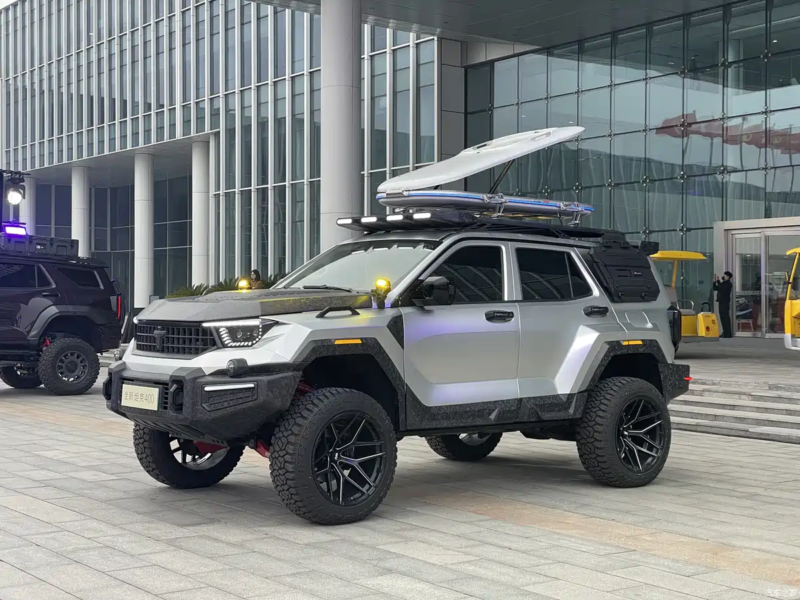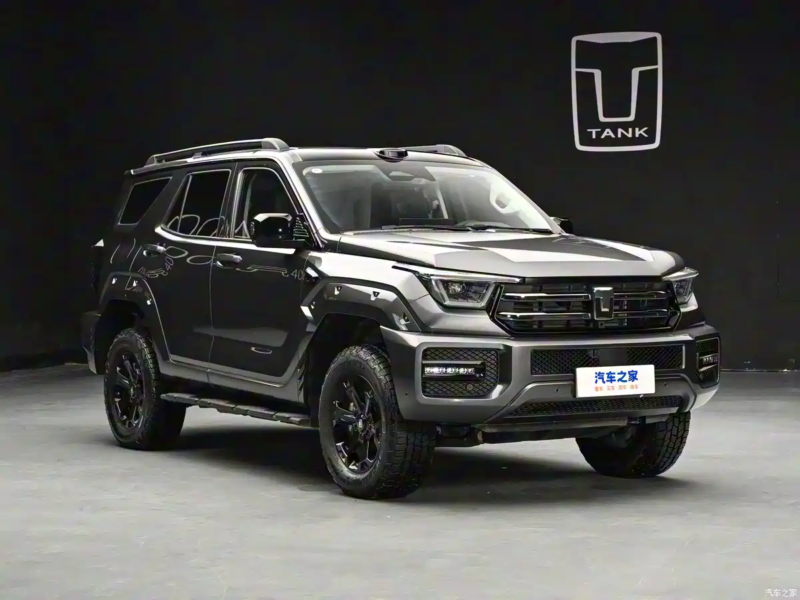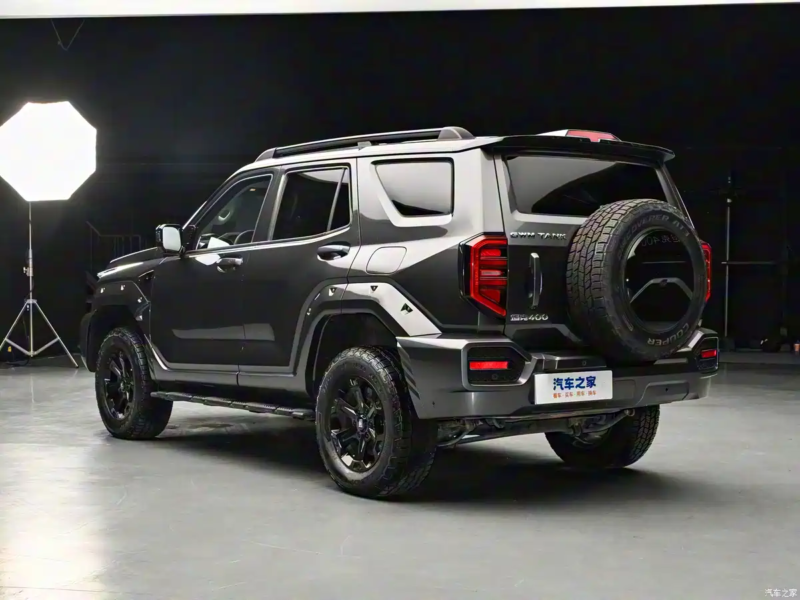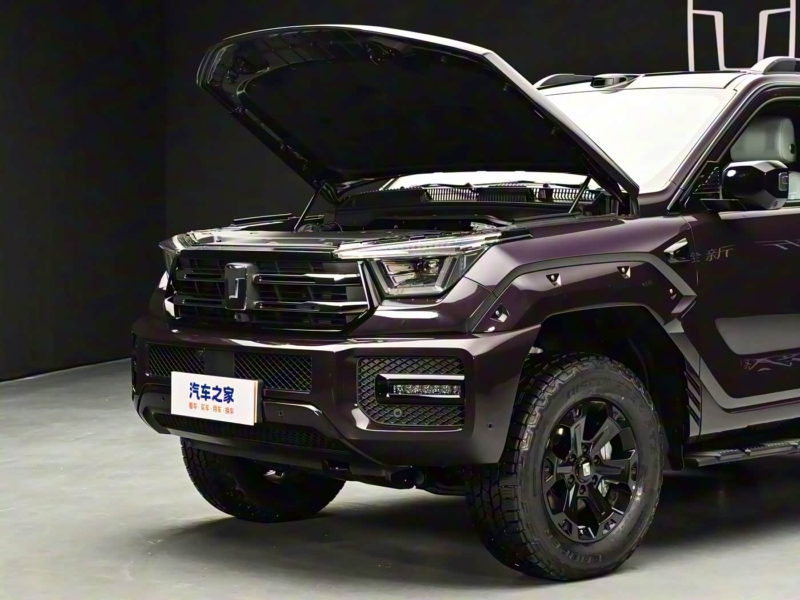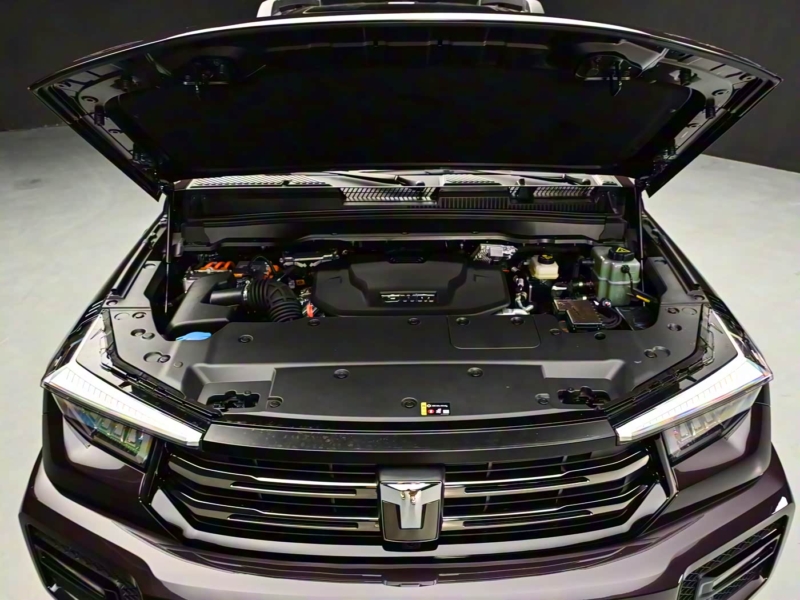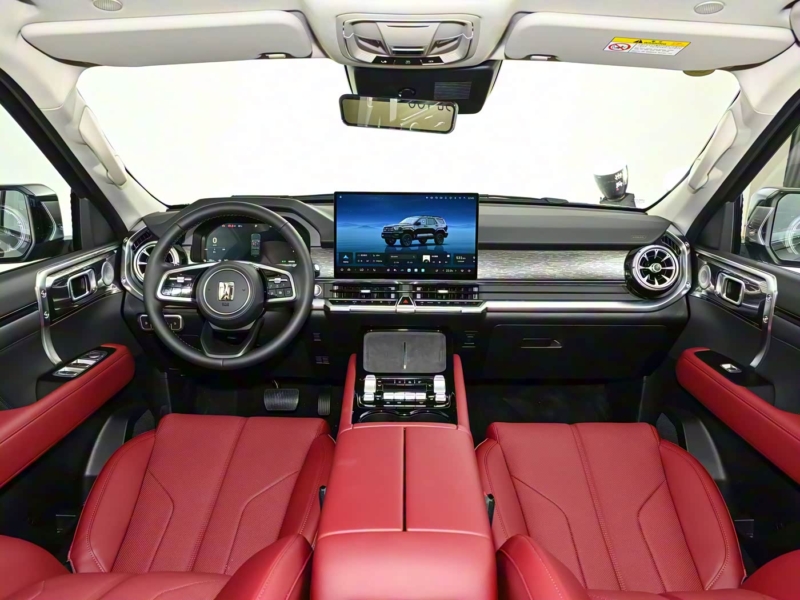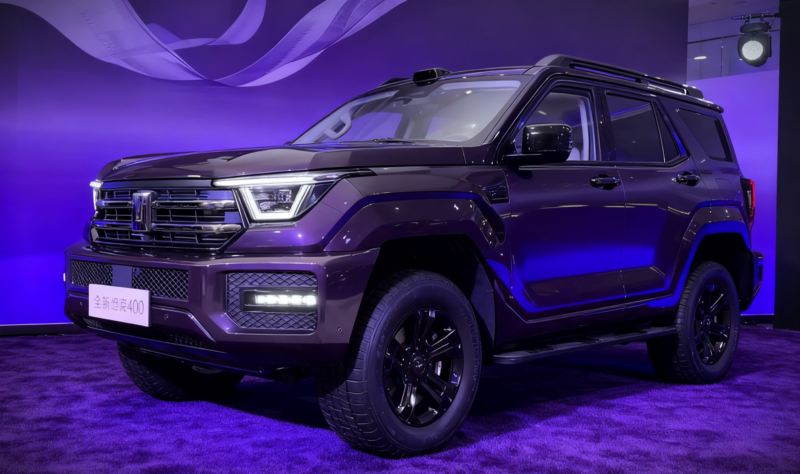GWM launches refreshed Tank 400 SUV with intelligent driving starting at 35,050 USD in China
The brand Tank, under Great Wall Motor (GWM), has officially launched the refreshed Tank 400 model in the Chinese market. The upgrade encompasses exterior, interior, and intelligent driving assistance enhancements, while retaining the ladder-frame architecture and multiple powertrain options.
| Variant | Powertrain | Price (yuan) | Approx. USD* |
|---|---|---|---|
| Base model | Gasoline 2.0T + 48V mild hybrid | 249,800 | 35,050 |
| Base model | Diesel 2.4T | 264,800 | 37,150 |
| Hi4-T Standard | 2.0T + single motor PHEV | 285,800 | 40,150 |
| Hi4-T Intelligent | 2.0T + single motor PHEV with added features | 299,800 | 42,100 |
| Hi4-Z Intelligent | 2.0T + dual motor PHEV | 319,800 | 44,900 |
The updated Tank 400 retains its mechanical design, with a side-profile length of 4,964 mm, width of 1,970 mm, height of 1,905 mm, and wheelbase of 2,850 mm. Compared to the outgoing model, the length is 21 mm shorter, the width has increased by 10 mm, and the height has increased by 5 mm.
The front end features a redesigned bumper with black decorative elements surrounding the fog lamp zones, a larger grille with two horizontal chrome bars, and polygon-shaped headlights. Side details include exposed-style rivet trim on the wheel arches, as well as variant-specific side steps (electric on the Hi4-T Smart and fixed on the Hi4-Z Smart). Rear-end retains the spare wheel mounted on the tailgate with a new cover design and revised badging (upper “TANK” and “Great Wall Motor”, lower “Tank 400” plus powertrain identifier).
Inside, the main centre touchscreen is now a 15.6-inch display with a 2.5K resolution, down from its previous 16.2-inch size, but with upgraded clarity and software (GWM’s third-generation Coffee OS + Coffee GPT voice interaction). The instrument cluster is a 12.3-inch full-LCD unit, and a heads-up display is included. A stalk-type shifter has replaced a rotary-style gear selector.
Higher trims include Nappa perforated leather seats with front heating and ventilation, as well as a 3-step 8-point driver’s massage. The rear cabin features a 15.6-inch entertainment screen, a built-in 5.4-litre vehicle-mounted fridge (with a temperature range of −6 °C to +50 °C), rear manual sunshades, and a 14-speaker sound system.
The new Tank 400 lineup includes a range of powertrain options to suit different driving preferences. The gasoline version is powered by a 2.0 T engine paired with a 48-volt mild-hybrid system, delivering a maximum output of 185 kW and 385 N·m of torque, and is coupled with a 9-speed automatic transmission. The diesel model features a 2.4 T engine producing 137 kW and 490 N·m, paired with a 9-speed automatic transmission.
Among the plug-in hybrids, the Hi4‑T variant combines a 2.0 T engine generating 185 kW with a 130 kW electric motor and a 37.1 kWh battery, offering a WLTC pure-electric range of approximately 105 km and supporting fast charging up to 103 kW. The Hi4‑Z variant pairs the same 2.0 T engine with dual electric motors rated at 215 kW and 240 kW, backed by a 59.05 kWh battery that enables a WLTC pure-electric range of approximately 200 km and fast charging up to 163 kW.
In addition, the Smart trims are equipped with the Coffee Pilot Ultra driving-assistance system, which integrates a Hesai ATX rooftop lidar and multiple exterior side cameras, enabling both city and highway navigation-on-autopilot (NOA) functions, as well as multi-type automatic parking support.
In China’s hardcore off-road SUV segment, the Tank 400 competes with models like the Beijing BJ60 and Fangchengbao Baobao 5, with starting prices from 239,800 yuan (~33,650 USD). The Tank brand has consistently sold over 10,000 units per month, with the Tank 400 reaching approximately 2,446 units per month as of January 2025.
